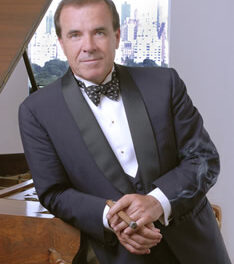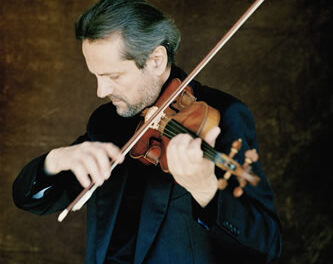Unless you’ve already seen Charlie Chaplin’s City Lights, the 1931 comedy’s universally acknowledged status as an adored masterpiece may have served as the only barrier to your already knowing just how hilarious the film really is. My own excuse is lamer than that: I thought I’d seen City Lights many years ago. I also thought I was going to Belk Theater to see what the Charlotte Symphony Orchestra playing Chaplin’s original score added to the experience in the final pops concert of the 2013-14 season. Even if I had seen City Lights before, I’d probably have been laughing too hard to render a sober, precisely calibrated judgment. Chaplin’s filmmaking is so damn good, his exploits as a comedian so damn funny, that it’s easy, for long stretches, to ignore how perfectly his musical score meshes with the action of his screenplay.
Of course, I was keenly aware that my wife Sue and I were watching a feature film at the Belk for the first time. The experience was warmer and more welcoming than I expected, quickly overcoming my misgivings about the formality of the setting and beholding the film from the distance of our customary seats in the grand tier. The screen doesn’t fill the stage, nor are we plunged into pitch darkness, so the experience was unmistakably different from normal movie-going, retaining the atmosphere of a unique concert. Sue recoiled somewhat at the sight of popcorn boxes defiling the grand tier, but the sound of munching – or talking, for that matter – never intruded on our enjoyment. So kudos go out to Blumenthal Performing Arts for thoroughly thinking out the parameters of this movie presentation.
Former CSO associate music director Jacomo Rafael Bairos returned to the Belk podium after a year’s absence, the perfect choice for any score bursting with color, rhythmic verve, and variety. True to the Chaplin aesthetic, Bairos never said a word before or after cuing in the music, but that was the only one of Bairos’ podium gifts that was regrettably lost to us. Music sprouted up while the screen was still dark, before we even saw the cast list. But make no mistake, before the musicians received their cues from the podium, Bairos was receiving his from the fadeouts and fade-ins onscreen. As Chaplin’s Tramp unexpectedly appears at the public unveiling of a new statue, hilariously hoisted by a sculpted sword; as he nearly drowns himself saving a drunken millionaire from suicide; or when he’s gratefully taken to a wild restaurant celebration, the Tramp slips maniacally on a dance floor, repeatedly lights the millionaire’s cigar instead of his own, and eats a long paper streamer instead of the spaghetti on his plate; it’s easy to overlook how Chaplin’s music contributes to the merriment – and how perfectly the CSO is playing it.
At other times, sometimes the quietest, the presence of live musicians adds noticeably to the delight. At a more formal scene in the millionaire’s living room, the Tramp upsets the decorum of a vocal recital by swallowing a whistle and going into fits of coughing. Each of those involuntary whistles was played live, perfectly timed, by a musician who wasn’t even watching the film! The beautifully constructed, beautifully balanced story is charming, expertly salted with unique instances of mistaken identity. Because the millionaire is a troubled alcoholic, he only recognizes the Tramp as his lifesaving friend when he’s in his cups at night. Once the morning light shines through the windows of his bedroom, the sobered-up plutocrat sees the Tramp as an intrusive nuisance. Similarly, the golden-haired flower girl who is the love of the Tramp’s life mistakes Charlie for a millionaire because she is blind. Thanks to the wonders of medical science, the millionaire’s money can bestow the gift of sight to the Tramp’s beloved, but not before he helps her stave off eviction by coming up with the $22 needed for the month’s rent. Scrounging for that rent money enmeshes the Tramp in the most hilarious prizefight ever enshrined on celluloid.
Chaplin’s grace and insouciance are broken in the touching final street scene where we see the Tramp at his lowest ebb. Until then, he’s invincible: tossed out of the millionaire’s brownstone on his ear by the irate butler, the Tramp calmly peels open a banana and walks away as if nothing has happened, dignity restored. Typical Tramp: pesky, plucky, and comically elegant. His tormentors are only slightly less marvelous – Harry Myers as the Eccentric Millionaire, Virginia Cherrill as the Blind Girl, Allan Garcia as the Butler, and Hank Mann as the Prizefighter. You would laugh out loud even if you ran this gem on your iPad, but you’ll be missing out if you don’t catch City Lights in its fullest glory at the Belk with Charlotte Symphony suavely sharing the stage. Chances are, you’ll want to book the next pops movie concert at the Belk as soon as you’ve seen this one.
Buy, beg, or borrow a ticket. City Lights may be seen – and heard – again April 26. For details, see the sidebar.












